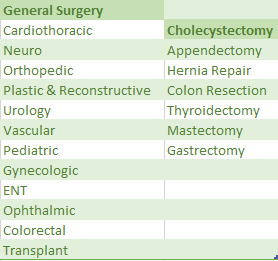Complex Anatomical Variations
Rare, Complex Scenarios
Critical Decision making scenarios
Scenarios with real patient data integration
Generative AI-driven Surgical Simulation Platform
For Surgeons
1) Continual Skill Improvement: Experienced surgeons can use AI-driven simulations to refine their skills, stay updated with new techniques, and practice rare or complex procedures they might not encounter frequently in their practice.
2) Preparation for Complex Cases: Surgeons can simulate specific patient cases based on actual patient data, allowing them to rehearse and plan their approach before performing the surgery in real life, leading to better outcomes.
3) Collaboration and Training: Surgeons can use the platform to collaborate with peers, share knowledge, and mentor residents and junior surgeons through shared simulation exercises and guided practice sessions.
For Surgery residents
1) Enhanced Learning and Skill Development: Generative AI-driven simulations provide a wide range of realistic scenarios, allowing residents to practice various surgical techniques and decision-making in a controlled, risk-free environment.
2) Personalized Training: AI algorithms can tailor simulations to the individual needs and progress of each resident, ensuring they receive training that addresses their specific weaknesses and builds on their strengths.
3) Immediate Feedback and Analytics: Residents receive real-time feedback on their performance, helping them to quickly identify and correct mistakes, and understand the impact of their actions on patient outcomes.
For Researchers
1) Data-Driven Insights: Researchers can leverage the vast amounts of data generated by simulations to analyze surgical techniques, outcomes, and procedural variations, leading to evidence-based improvements in surgical practice.
2) Development of New Techniques: AI-driven simulations provide a testing ground for developing and refining new surgical techniques and tools, allowing researchers to evaluate their effectiveness and safety before clinical trials.
3) Interdisciplinary Collaboration: The platform can facilitate collaboration between researchers, surgeons, and engineers, fostering innovation and accelerating the translation of research findings into practical surgical applications.
Surgery - Models & Simulations

3D Modeling: Develop detailed 3D anatomical models of the main organ (e.g. gallbladder for cholecystectomy) and surrounding structures.
Dynamic Adaptation: Adaptive scenarios that change based on the trainee’s actions.